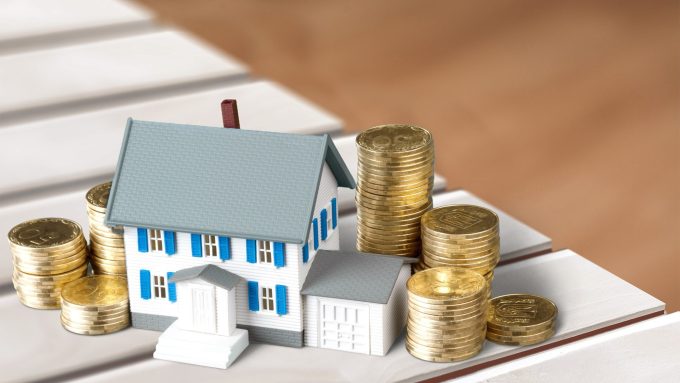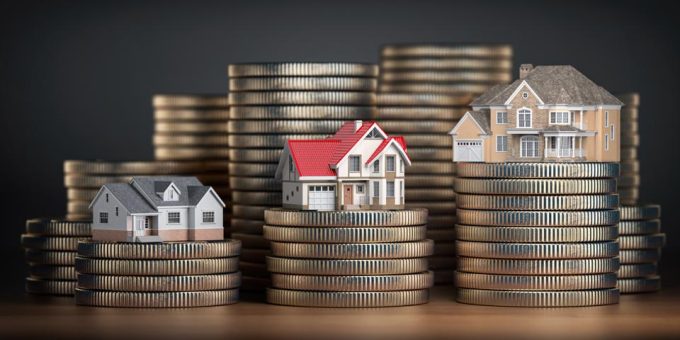Inflation rates have been at their highest in the past 4 decades, with the USA’s inflation rate alone rising up to 9.1% as of July 2024. The last time inflation was this high was in the 80s. Check out Lordping.com to read more about the 1980s inflation.
With inflation rates rising so have interest rates. Last month the average interest rate for a 30-year property with a fixed-rate mortgage was at 6%, compared to the interest rate of the same month last year which was 2.9% for the same 30-year fixed-rate mortgage.
Real estate investment has been the most stable type of investment. However, given inflation how will that affect your real estate investment? Is 2024 a bad year to invest in real estate?
Historically, investing in real estate has been stable and has always out-performed all other types of investments. Real estate has adapted quite well to rising-rate economies. Specifically, real estate properties that generate monthly income such as multi-family homes have shown to grow during periods of inflation.
Values
The value of properties is affected by inflation and interest rates. Inflation affects all aspects of the real estate industry. Ranging from labor costs, material costs, taxes, and more. The rule of thumb is, that as inflation increases, so do the asset prices of housing and other real estate investments.

However, the rising interest rates pressure down the prices of real estate. As interest rates rise, mortgages go up and become more expensive which makes it more difficult and costly for regular consumers to purchase homes. However, when housing prices go up the opposite thing happens for its demand, which draws down the housing market. In turn, the homeowners reduce the prices of their properties significantly to attract more potential buyers.
As of the first half of 2024, housing prices continue to go up. This year’s house pricing rate has increased and is significantly steeper than of years before. It is predicted that as the interest rate goes up, the steeped price will start to decline or flatten. This has already been proven in other markets.
The supply, demand, and rising rent
Rental demands go higher as interest rates rise. There are more people forced to rent properties because of rising interest rates, this is because the rise of interest rates leads to fewer people qualifying for property mortgages.
Over the past year, rent has exponentially gone up compared to previous years. 2024 has some of the highest interest rates in US history. Rent went up 11.3 percent last year, and even some places in the US have gone 39 percent. It’s not likely that we will see a continuous rise in rent at a rapid pace going forward. However, given recent inflation in addition to the rise in mortgage rates, rent is likely to increase in the coming months as mortgage and inflation elevates.
Cheaper Debt?
As inflation increases, all debt (including your fixed-rate debt) becomes cheaper. Consider this:

- You bought a property for $125,000 5 years ago.
- You paid a $25,000 downpayment on the property
- You have a $100,000 mortgage for 25 years and have a fixed interest rate of 3%
- Let us assume that every year, inflation increases by 3%. Consider it going higher, given the recent trend.
- Every year succeeding you will pay only $475
- The value of your dollar has gone up by more than 3% every year following
- By that, your $475 has gone down and is then cheaper.
The cost of your debt goes down with inflation.
Why you should STILL invest in Real Estate
Historically, real estate investing has been the best and safest investment. It’s more secure than the stock market and better than just keeping your cash in a savings account.
So why is real estate safer and better?
Passive Income:
When you invest in real estate and rent it out, you have tenants and renters that pay off your mortgage. This is how you receive monthly passive income. Having enough streams of income that covers your monthly expenses is a sure formula for financial freedom. It will allow you to reduce your active income like your 9-to-5 and spend more time doing what you want.
Federal Tax
With how taxes work, you can actually make money while on a “loss” in your taxes. The way the tax code is structured heavily favors investors in real estate! This way you will end up paying less in taxes.
Leveraging your money

Let’s say you want to buy $50,000 worth of stocks. You have to work, generate income even take out loans to get the full $50,000 to buy the stocks you want. You get the $50,000 and you put it in a brokerage or even worse, a savings account.
But with real estate you don’t have to do that, you don’t have to wait until you get the full $50,000 to invest. Real estate allows you to do it in parts. You can put 50% down, 20% down sometimes even 0% but you’ll still get the $50,000 property! Consider this scenario, you put 20% down on 5 different real estate properties, that’s 5 properties for only $250,000 all for the same $50,000 investment. This is what we mean when you leverage your money.
Your assets appreciate
When your assets appreciate, so does your net worth. Historically, real estate values increase over time. It can even increase as fast as a month in some cases. But time and the economy isn’t the only thing that can increase the value of your property. You can “force” the appreciation of your investment. Forcing appreciation is putting your property through renovations and improvements. Such as house-flipping, renovations or even buying out surrounding properties. All of these affect the value of your property.
So, Should You Still Invest in Real Estate?
Inflation isn’t new, inflationary environments result in higher rent prices and a rise in asset prices. But even then, real estate has historically been a great anchor against rising inflation. So why should you still invest in real estate? First, your property value goes up even during inflation. Second, rent prices match in the rise of inflation. Third, your debt can decrease with inflation because debt in your assets can be devalued.

Given everything, real estate investors still need to be wary and be vigilant of inflation environments. As interest rates in your properties go up, so does the cost of borrowing. This may put downwards pressure on your income streams and make you need to liquidate your assets. This downward pressure can also make newer developments cost more.
Still, investing in real estate has more positives than negatives. Even an inflationary environment can still be a huge positive in the real estate world for smart investors.









